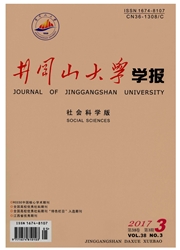

 中文摘要:
中文摘要:
以2006年至2012年深、沪两市上市公司连续7年的数据为样本,基于审计治理效应的理论基础,提出并验证了三大假设。研究发现:(1)投资机会集与盈余质量负相关,随着投资机会集的增加,会计盈余的质量下降,投资者做出投资决策时,会减少对会计盈余的依赖;(2)高无形资产投资强度情况下,由于计量噪音,随着投资机会集的增加,会进一步降低会计盈余的质量;验证了无形资产的计量噪音在我国确实存在;(3)再引入高质量审计的情况,即使高无形资产投资强度的公司,随着投资机会集的增加,盈余质量显著提高。验证了高质量审计的公司治理效应。
 英文摘要:
英文摘要:
This paper proposed and tested three assumptions based on audit governance effect theory and on data samples of public listing companies in Shanghai or Shenzhen Stock Exchanges during 2006 through2012. It is found that:(1) investment opportunity set is negatively correlated to the earning quality. With increase of investment opportunity sets, the quality of accounting earning decreases, and investors lower their reliance on accounting earnings when making investment decisions;( 2) on condition of high intensity of intangible assets investment, increase of investment opportunity set further reduces accounting earning quality as result of measurement noise. It testifies the existence of measurement noise of intangible assets in China;( 3) on condition of high-quality audit, even company of high-intensity of intangible assets investment experiences remarkable increase of earning quality when the investment sets increases. It testifies the company governance effect of high-quality audit.
 同期刊论文项目
同期刊论文项目
 同项目期刊论文
同项目期刊论文
 期刊信息
期刊信息
